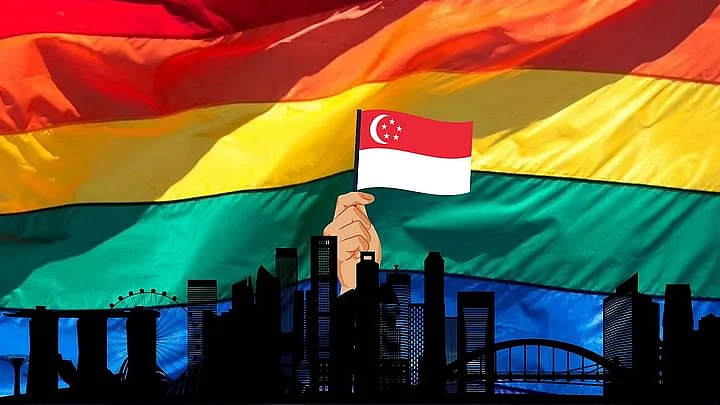Singapore To End Law Criminalising Gay Sex but Says 'No' to Same-Sex Marriages
"We can finally begin the process of healing," a Singapore LGBTQIA+ rights group said, in a statement.

advertisement
In an announcement that preceded years of debate, Singapore Prime Minister Lee Hsien Loong said on Sunday, 21 August, that the country will decriminalise Section 377A – a colonial law that penalised sex between men.
However, in the same announcement, he added, that the city-state has "no plans to change the legal definition" of marriage – which the law currently 'allows' only between the conservative definitions of man and woman.
In his National Day rally speech, Lee said that Singapore, as a society, was "becoming more accepting of gay people."
While there is no clarity on when exactly the law will be repealed, Singapore now joins other Asian countries like India, Taiwan, and Thailand that have decriminalised gay sex.
What is 377A?
Like India's Section 377, Singapore too inherited 377A from the British when they were a colony.
According to the BBC, the law also led to any content deemed as "promoting homosexuality" being banned from broadcast in Singapore, and TV shows and films with same-sex characters censored.
'A More Equal, Inclusive Singapore'
In a statement, several LGBTQIA+ rights groups welcomed the repealing of 377A, stating that members of the community can finally 'begin the process of healing'.
However, many pointed that Singapore's promise to make constitutional amendments to ban same-sex marriage furthered their discrimination in society.
An alliance of more than 80 churches expressed "strong disappointment" over the announcement, Reuters reported.
"The repeal is an extremely regrettable decision which will have a profound impact on the culture that our children and the future generations of Singaporeans will live in," the alliance said in a statement.
(At The Quint, we question everything. Play an active role in shaping our journalism by becoming a member today.)